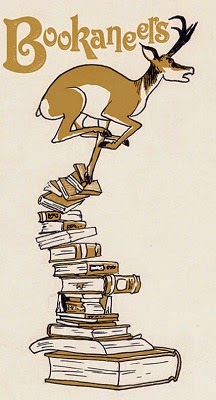Give every student a domain name and web hosting, and let freedom ring!
Although Jim Groom, Director of the Learning Technologies at the University of Mary Washington, probably wouldn't like that wording, that is the gist of his recent pilot project, A Domain of One's Own.
He recently gave an interview for the Chronicle's Tech Therapy blog in which he described the project and its motivations. Have a listen, if it sounds like it might tickle one of your fancies.
So, quick aside: I had this idea to write a post about digital subjectivity in relation to this project, and I was set straight (rightfully) by Althea. Here's how the conversation went:
Me: Hey, I'm thinking of writing a post on subjectivity.
Althea: Ahahahahahahahaahhahahahaha..ahah. heheh. heh... hmm?
Not really. Althea is too nice to laugh that much in my face, but I know she was laughing inside. But, the upshot is this: I think librarians should be interested in what might be called "digital subjectivity." So, let's talk about that sometime. Maybe even write some posts about it!
Okay, back to our regularly scheduled programming...
Recently, I've been working with a librarian here at UW Bothell to think about the relationship between information literacy (the standard bearer of library instruction) and technological literacy, an ill-defined (perhaps undefinable) set of literacies that are related to information literacy. Although what it means to be technologically literate is as difficult to define and describe as what it means to be to informationally literate, we must forge ahead and do something, despite the definitional problems.
I like the ethos of UMW's pilot project: set up a space and let the students and faculty have the openness to do what they want.
Many would quickly retort: "Ahhhh! What if they don't know what to do!?"
The truth is that learning is struggling, puzzling, feeling the anxiety of not knowing what you don't know. I think the scariness of openness (a term I haven't defined, but so it goes...) is something to work with, rather than something to avoid. When you see someone achieve some success in relation to a research problem (information literacy) or a technology problem (technology literacy), you see them achieving some level of empowerment. But, when we set up systems in libraries and across the university that reduce the fear of the open unknown, we also reduce the possibilities of success and empowerment. There is nothing so effective at reducing someone to powerlessness than a system that never challenges them. Ask any high achieving student in a middling classroom.
In the end, whether you work as a technologist or a librarian, much of your job is becoming a collaborator on all sorts of projects. As we move forward with these projects, we might do well to take some advice from UMW's project and set the bar high, challenge people and then work our asses off to help them achieve success.
